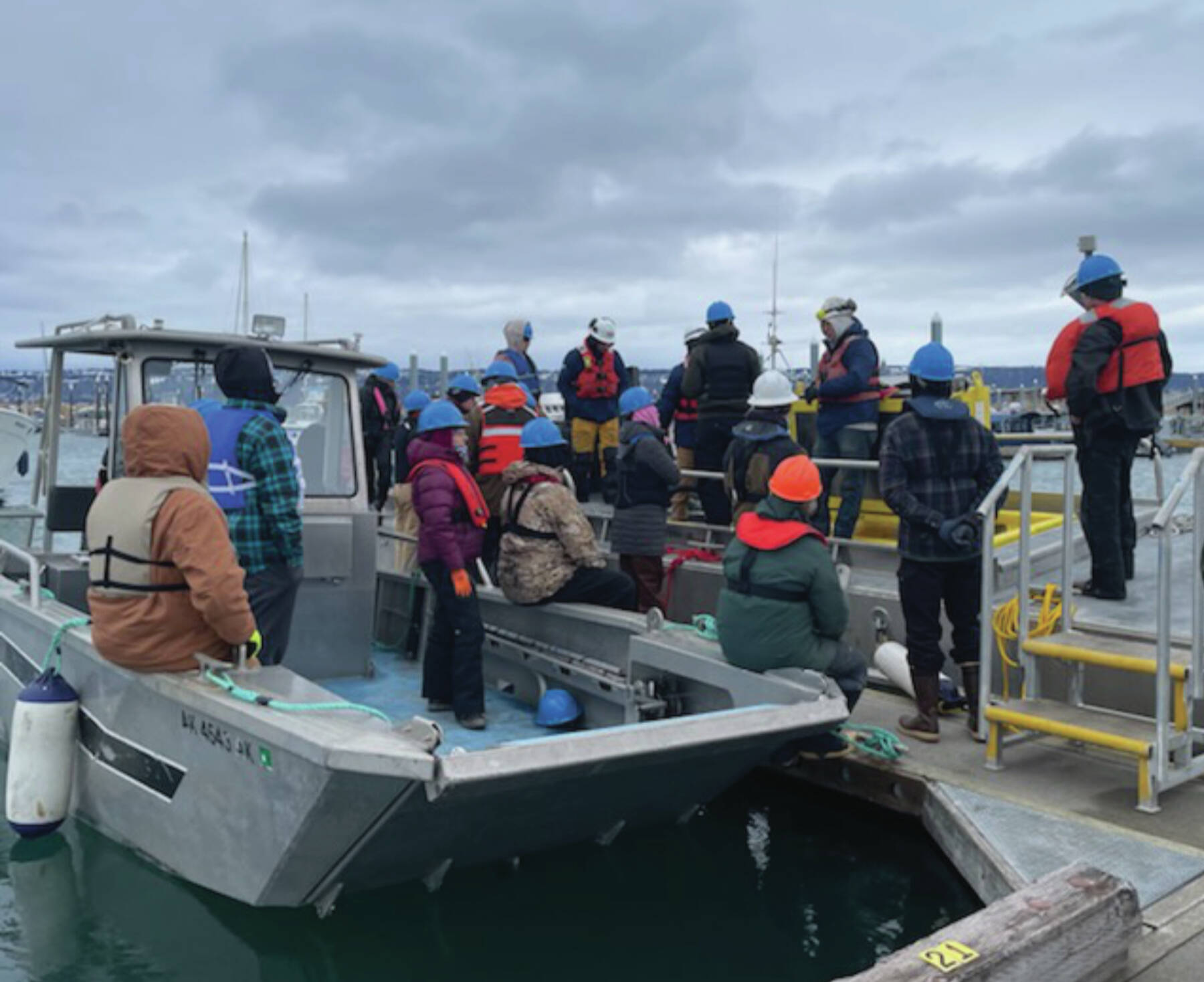The Alyeska Pipeline Ship Escort Response Vessel System (SERVS) training took place in Homer last week from April 17 to 20 with contract vessel operators and crew. The training included both outdoor and indoor classroom workshops as well as an on-water day for oil spill response preparation drill rehearsals.
SERVS was created in 1989 after the Exxon Valdez oil spill to assist in the prevention of oil spills and provide oil spill response and preparedness capabilities for the Alyeska Pipeline Service Company and marine shipping companies who operate the tankers that call at the Valdez Marine Terminal. The service has been in place for 35 years. Training activities include deploying booms and setting up skimmer equipment and other recovery tactics.
Kate Dugan, Valdez community and public relations manager with the Alyeska Pipeline Service Company, provided more specific titles for the drills. Indoor drills include: task force leader, sensitive area protection, primary storage and decontamination. Outdoor drills include: mini-barge operations, micro-power pack with termite and crucial skimmers and helix power packs, with elastic and helix skimmers. The on-water drills included nearshore and open water tactics with various boom and skimmer systems.
The SERVS website states that more than 400 total vessels from around the Prince William Sound area have contracts with Alyeska to provide oil spill response support.
Dugan notes that vessels from the communities in closer proximity to the Sound tanker lanes such as Valdez and Cordova are in a different response tier. These vessels (and crew) are referred to as the “Core Fleet” or Tier I.
Trained vessels from communities such as Homer, Kenai or Kodiak are Tier II responders. The vessels typically used as response vessels are seiners, stern pickers or bow pickers.
Approximately 200 people and about 50 private vessels participated in last week’s training in Homer.


